Choosing a dog can be a big decision, especially if you’re a first-time owner. It’s easy to be charmed by a cute face or a wagging tail, but some breeds come with more brainpower than you might expect. While intelligence is great, it can also come with a unique set of challenges. Smart dogs often need more mental stimulation and can be more demanding when it comes to training. If you’re new to the world of dog ownership, you might want to consider whether you’re ready for the challenge. Here’s a list of 14 dog breeds that are so smart, they might just outsmart you.
1. Border Collie
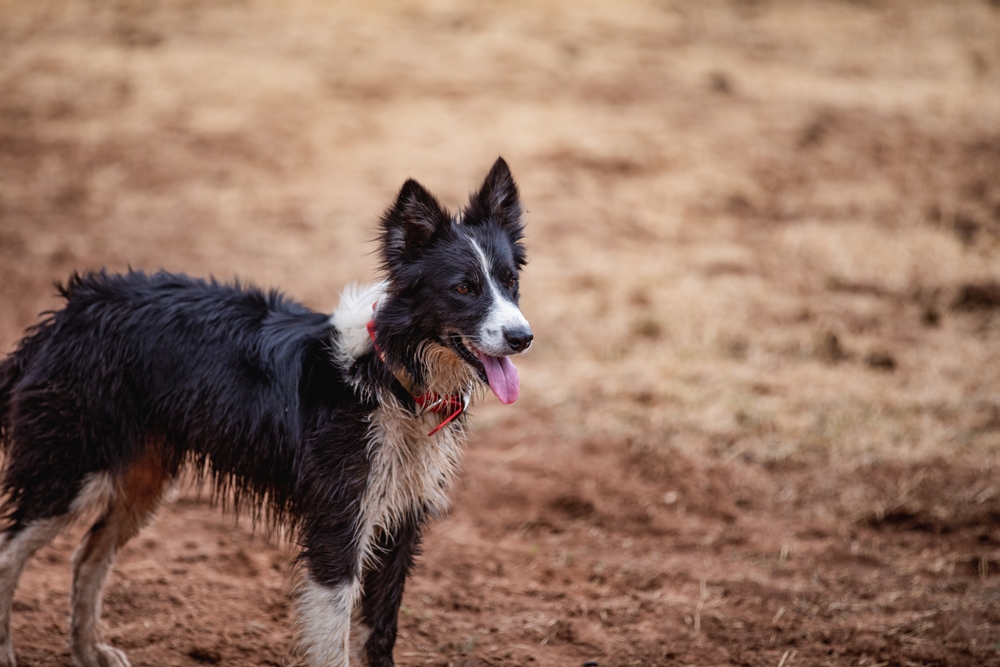
Border Collies are often considered the Einsteins of the dog world. Their intelligence is legendary, and they’re known for their ability to learn quickly and perform a variety of tasks. But this sharp mind means they can get bored easily, leading to mischief if their energy isn’t channeled into something productive. According to Dr. Stanley Coren, a renowned psychologist and canine intelligence expert, Border Collies are unrivaled in their ability to understand commands and execute tasks. If you’re not up for daily mental workouts and active play, this breed might end up running circles around you—literally.
Despite their intelligence, Border Collies need a lot of physical activity to stay happy and healthy. They excel in activities like agility training, herding, and even dog sports. Without enough exercise and mental stimulation, they can become destructive or develop behavioral issues. First-time dog owners might find their relentless energy and need for attention overwhelming. It’s crucial to consider if you have the time and energy to keep up with this lively breed.
2. Poodle
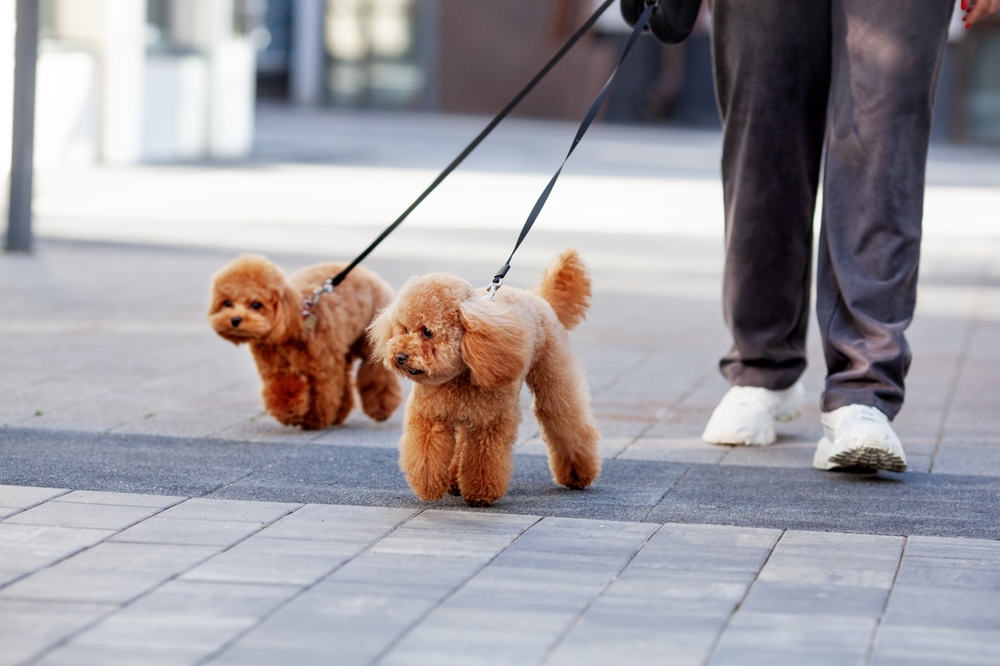
Poodles aren’t just about fancy haircuts and prancing around show rings. They are incredibly smart and come in standard, miniature, and toy sizes, each with its own spunky personality. Their intelligence makes them highly trainable, but it also means they get bored quickly if not given enough mental stimulation. Poodles excel in obedience competitions and are known for their problem-solving abilities. However, their need for engagement can be a lot for someone not used to dog ownership.
Poodles require both physical and mental exercise to truly thrive. They enjoy activities like swimming, fetching, and even canine sports. If you’re not committed to keeping their minds and bodies active, they might resort to finding their own fun in more destructive ways. Grooming is another crucial factor; their curly coats need regular maintenance, which can be an added responsibility. For first-time owners, balancing grooming, training, and exercise could become overwhelming.
3. German Shepherd
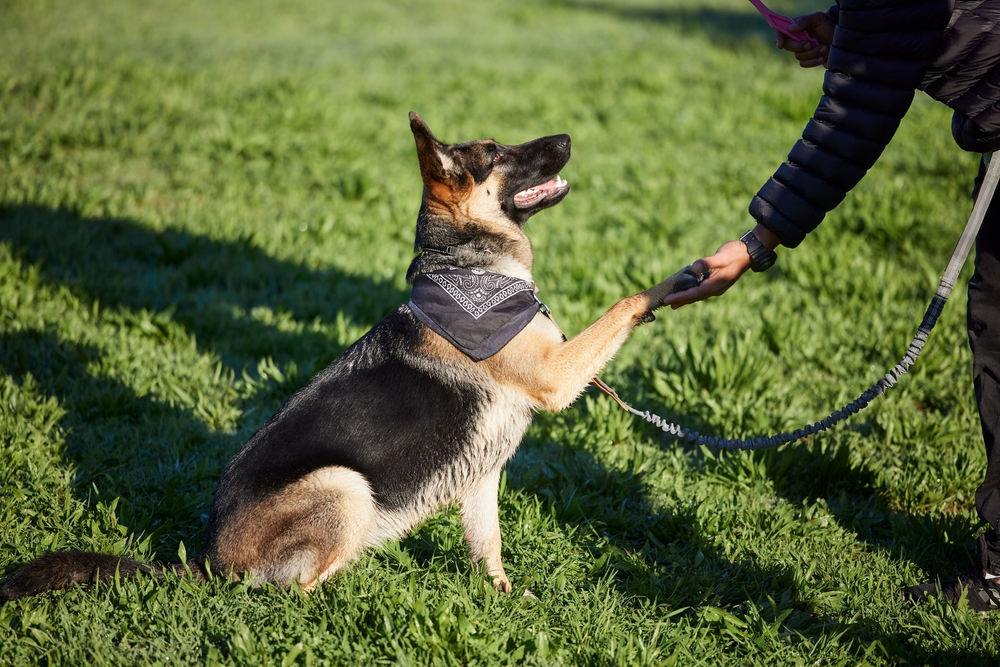
German Shepherds are known for their loyalty, courage, and intelligence. They’ve been used in various roles, from police and military work to being family pets, largely due to their versatile nature. Dr. Karen Overall, a researcher in animal behavior, states that German Shepherds excel because of their ability to learn complex tasks quickly. This breed needs a job to do, or they might create their own tasks, which could lead to trouble. If you’re new to owning a dog, you might find their energy and drive a bit too much to handle.
These dogs require a significant amount of exercise and mental stimulation. They’re happiest when they have a purpose, whether it’s herding, obedience training, or just playing fetch in the yard. Without these outlets, German Shepherds can become anxious or destructive. Their protective nature also means they need proper socialization from a young age. As a first-time owner, providing the right balance of discipline, love, and activity can be challenging.
4. Golden Retriever
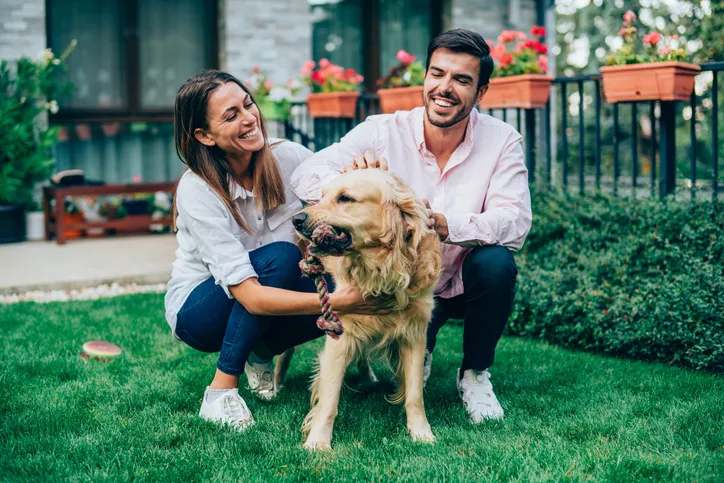
Golden Retrievers are often seen as the poster dogs for friendliness and family life. While they are incredibly affectionate and loyal, they are also quite intelligent. This intelligence means they can quickly learn commands and tricks, but also pick up on the emotions and routines of the household. They thrive on companionship and mental engagement, which can be a lot for someone not used to engaging with a pet on a daily basis. Their friendly demeanor means they do best in environments where they are part of family activities.
Golden Retrievers need regular exercise and mental challenges to prevent boredom. If left alone for too long, they might entertain themselves in less desirable ways, like chewing furniture or digging up the garden. Regular walks, training sessions, and games of fetch are essential to keep them happy. They also shed quite a bit, so regular grooming is necessary to manage their coats. For first-time owners, maintaining this level of care and attention might feel overwhelming at times.
5. Doberman Pinscher
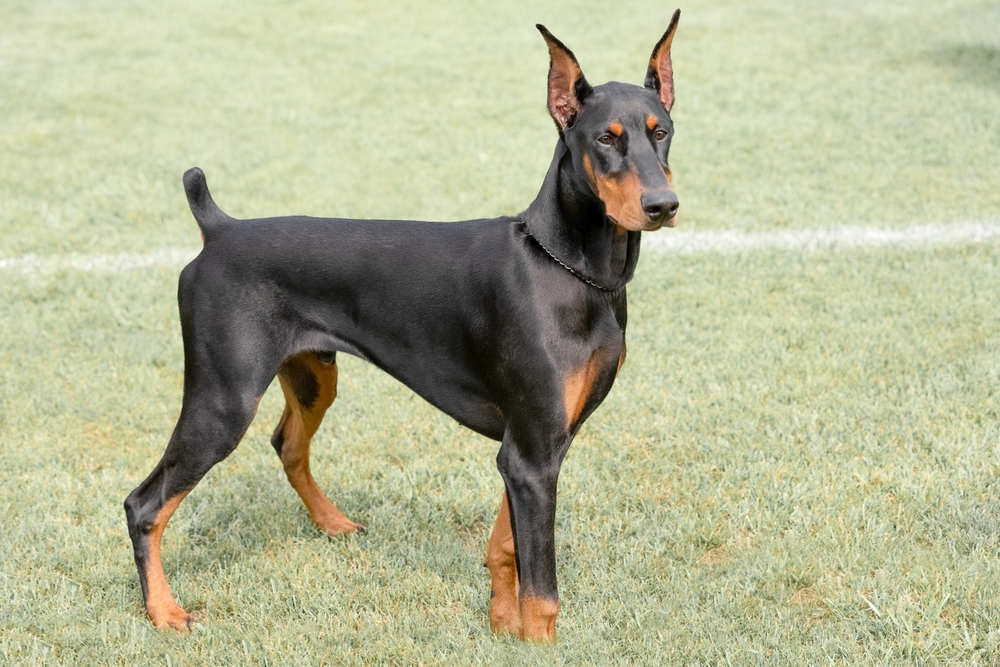
Doberman Pinschers are known for their sleek appearance and sharp intelligence. This breed is quick to learn and thrives on structure and leadership. However, their intelligence means they need a firm, consistent hand in training and a lot of mental stimulation. According to Dr. Ian Dunbar, a veterinary behaviorist, Dobermans excel when given proper training and socialization, which helps mitigate their naturally protective instincts. If you’re not prepared to be a confident leader, they might see themselves as the one in charge.
Dobermans are high-energy dogs that require plenty of exercise and mental challenges to keep them balanced. They are known for their loyalty and protective nature, making them excellent guard dogs. However, without proper guidance, they can become overprotective or even aggressive. Training and socialization from an early age are crucial, as is providing them with clear boundaries and lots of love. For a first-time owner, this can be a daunting task, as the breed demands a lot of time and commitment.
6. Australian Shepherd
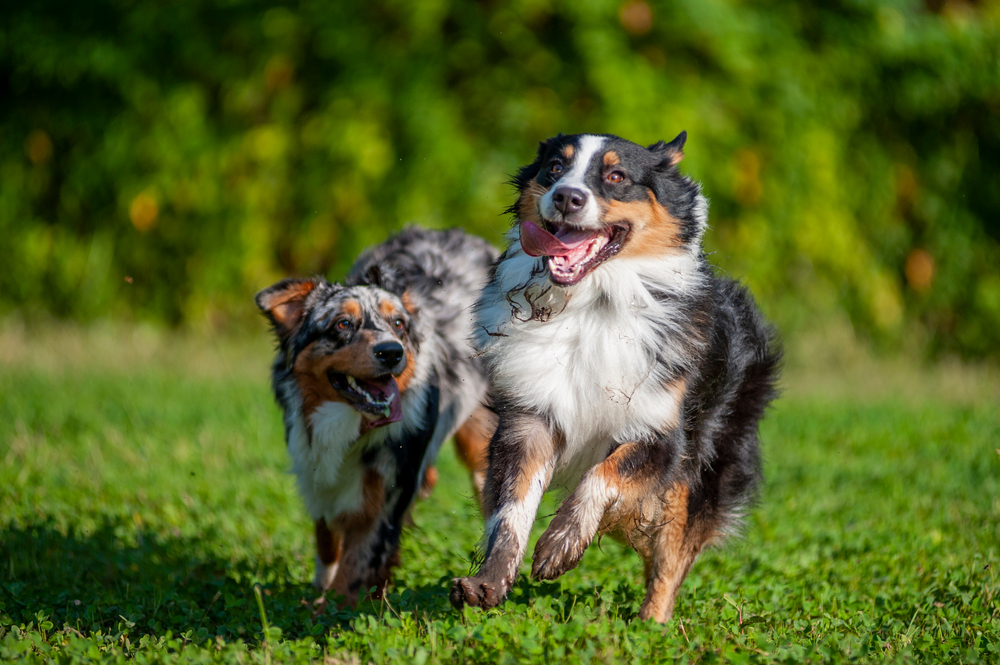
Australian Shepherds are lively, intelligent dogs with a strong work ethic. They were bred to herd livestock and have retained their need for a job to do. Their keen intelligence means they are quick learners, often picking up new commands or tricks with ease. However, this also means they can get bored and restless if not given enough mental and physical stimulation. If you’re not prepared to keep them occupied, they might find their own, often destructive, ways to entertain themselves.
Australian Shepherds need a lot of exercise and enjoy activities like running, hiking, and agility training. They are happiest when they have a purpose, whether it’s helping with the farm work or mastering a new skill. Without adequate outlets for their energy, they can become frustrated or anxious. Additionally, their herding instincts might lead them to try and herd other pets or children in the household. This can be challenging for first-time owners who aren’t familiar with managing such behaviors.
7. Belgian Malinois
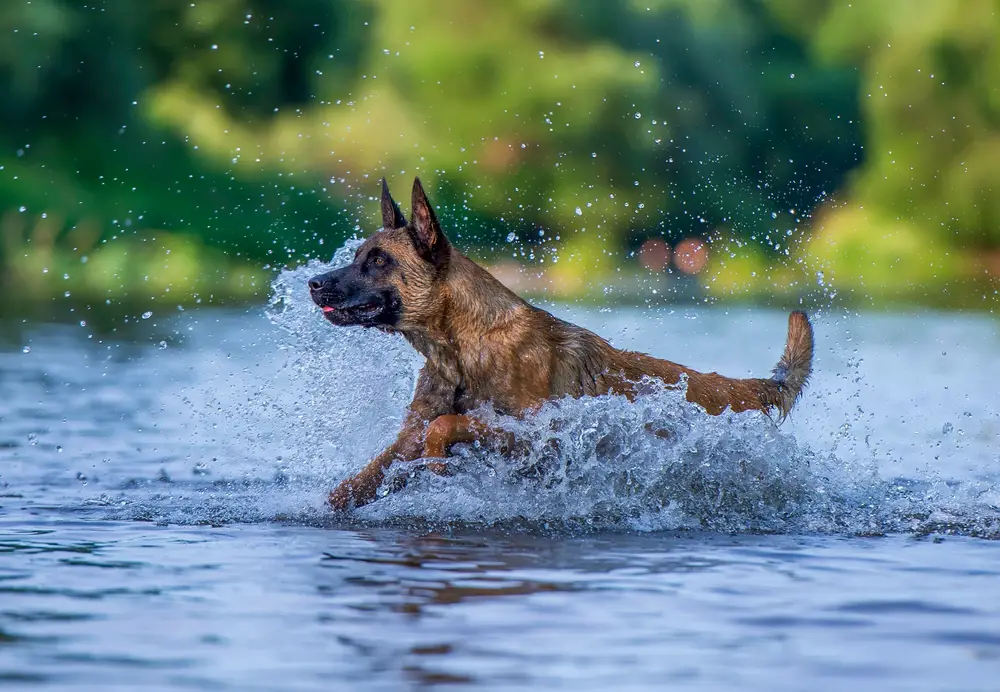
Belgian Malinois are often chosen for police and military work due to their intelligence, work ethic, and agility. These dogs are highly trainable but require a lot of structure and leadership from their owners. Dr. Amy Marder, a veterinary behaviorist, highlights that the Malinois’ drive and focus are unmatched, making them excellent working dogs but a challenge for inexperienced owners. They need to be mentally and physically engaged, or they might turn their energy towards less desirable activities. If you’re new to dog ownership, their intensity and drive might be more than you bargained for.
These dogs are incredibly active and require rigorous exercise to keep them happy. A walk around the block won’t suffice; they need runs, training sessions, and lots of playtime. Their intelligence means they need mental challenges as well, such as learning new commands or engaging in problem-solving activities. Without these outlets, they can become destructively bored or develop behavioral issues. For first-time owners, meeting these demands can be quite overwhelming.
8. Jack Russell Terrier

Jack Russell Terriers are small dogs with big personalities. They are incredibly intelligent and spirited, often seeming tireless in their quest for fun and adventure. Their high energy level and intelligence mean they require a lot of mental and physical stimulation. If left to their own devices, they might become mischievous, finding creative ways to entertain themselves. For first-time owners, their boundless energy can prove challenging to manage.
Despite their small size, Jack Russells need a lot of exercise. They love to run, play, and explore, and they thrive in environments where they’re given plenty of opportunities to do so. Training is essential to keep their energy in check and to prevent them from becoming too headstrong. Their intelligence also means they pick up on training quickly, but it requires consistency and patience. First-time owners might find their persistence and energy a bit too demanding.
9. Shetland Sheepdog
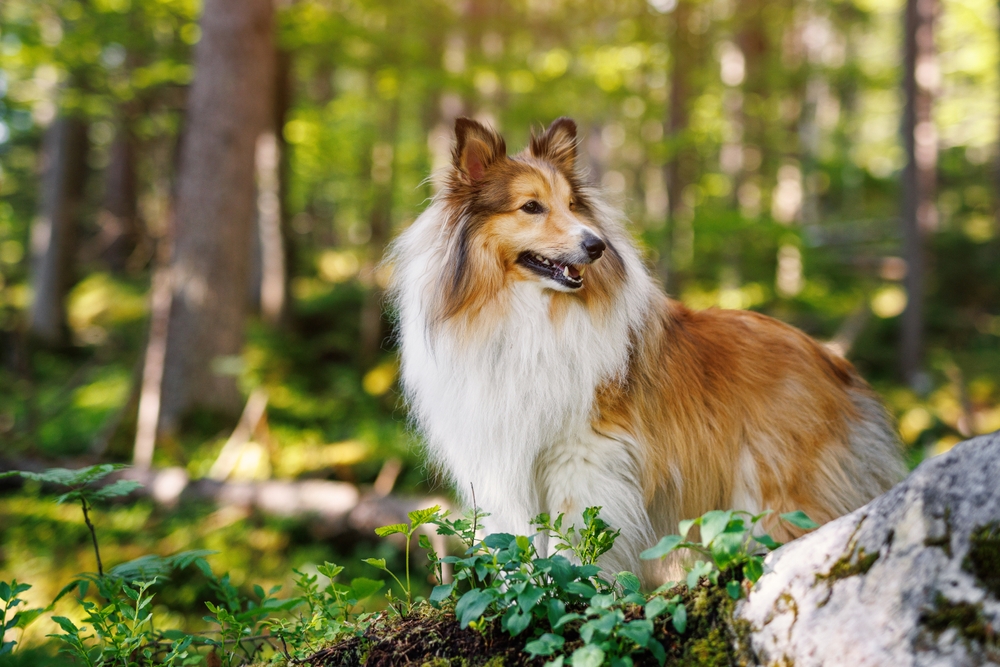
Shetland Sheepdogs, affectionately known as Shelties, are known for their intelligence and herding abilities. They are quick learners and eager to please, making them highly trainable. However, their intelligence also means they require a lot of mental stimulation to prevent boredom. They excel in activities like obedience, agility, and herding trials, which can be a lot of work for first-time owners to keep up with. Their sensitive nature also means they require gentle, consistent training.
Shelties need regular exercise and enjoy activities that challenge them both mentally and physically. They are known for their loyalty and love to be involved in family activities. Without enough stimulation, they can become anxious or develop behavioral issues. Their thick double coats also demand regular grooming to keep them looking their best. First-time owners need to be prepared for the time and effort required to care for and train a Sheltie properly.
10. Labrador Retriever
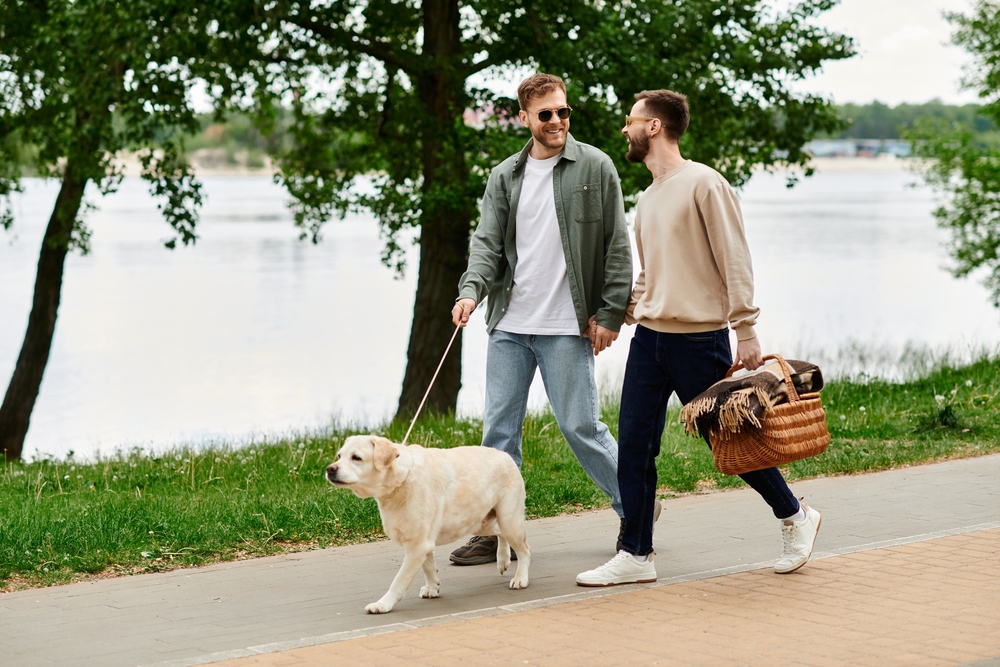
Labrador Retrievers are often associated with being friendly, outgoing, and family-oriented. They are also incredibly smart and require a lot of attention and mental stimulation. While they are eager to please and relatively easy to train, their intelligence means they can get into trouble if bored. Labs love to be part of the action and thrive in environments where they can be active participants. For first-time owners, managing their energy and ensuring they have enough mental challenges can be a lot to handle.
Labradors need regular exercise and enjoy activities like swimming, fetching, and hiking. They are social animals that love to be around people and other animals, and they do best in environments where they are not left alone for long periods. Their intelligence means they enjoy training and learning new commands, but it requires time and consistency. They also shed quite a bit, so regular grooming is necessary. As a first-time owner, balancing these needs alongside other responsibilities can be overwhelming.
11. Papillon
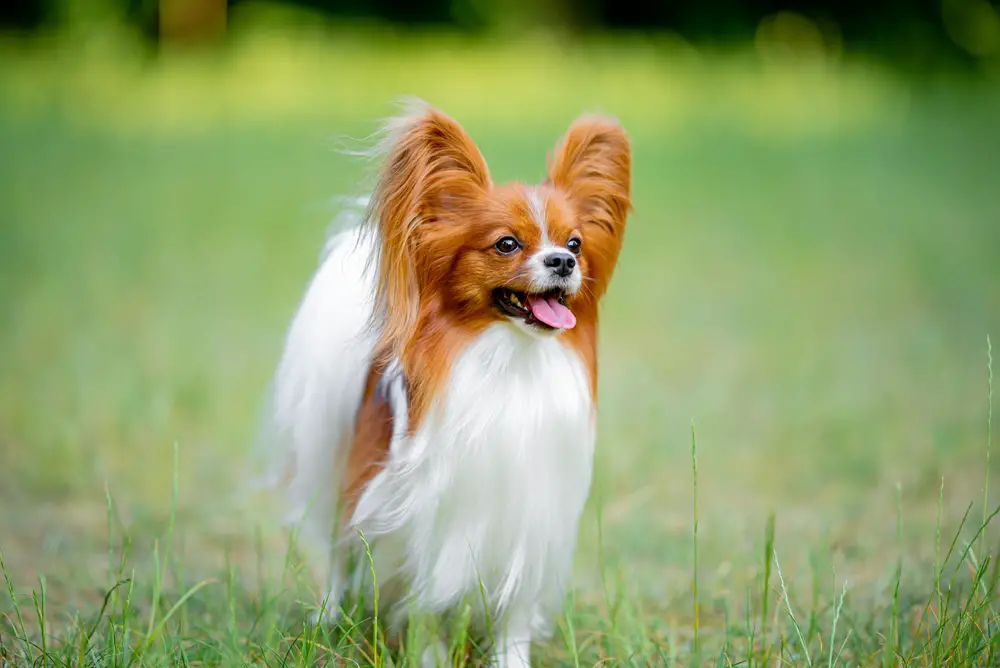
The Papillon is a small dog with a big heart and an impressive intellect. Known for their distinctive butterfly-like ears, they are quick learners who excel in agility and obedience. Despite their small size, they require a lot of mental stimulation and can become bored if not engaged. Their playful, curious nature means they are always looking for something to do. First-time owners might find their need for activity surprising given their size.
Papillons need regular exercise and enjoy activities that challenge them mentally. They are social creatures and love to be involved in family activities. Their intelligence means they are quick to pick up on commands and tricks, but they also require consistency and patience in training. Without enough stimulation, they can become anxious or develop behavioral issues. For first-time owners, meeting these needs can be a surprising challenge.
12. Rottweiler
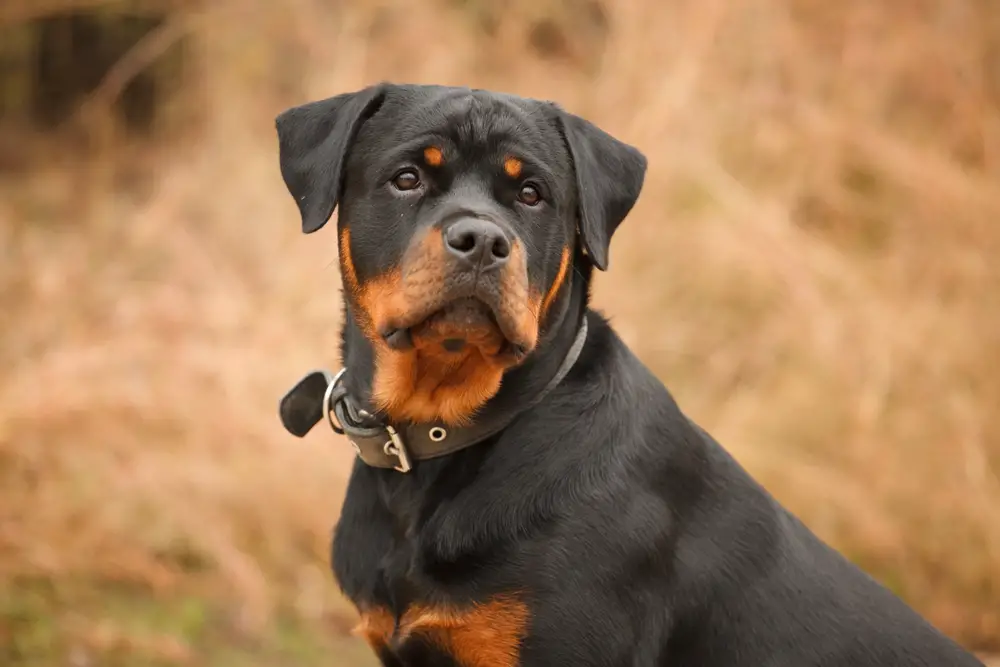
Rottweilers are known for their strength, loyalty, and intelligence. They are highly trainable but require a confident and experienced owner to guide them. Their intelligence means they need plenty of mental stimulation and a firm hand in training to prevent them from becoming headstrong. Rottweilers thrive in environments where they have a job to do and are involved in family activities. For first-time owners, their size and strength, combined with their intelligence, can be intimidating.
Rottweilers need regular exercise and enjoy activities that challenge them, both physically and mentally. They are protective by nature and require proper socialization from a young age to ensure they are well-adjusted and friendly. Without enough stimulation, they can become bored and potentially destructive. Their grooming needs are minimal, but regular exercise and mental challenges are a must. First-time owners might find the level of commitment required for a Rottweiler to be overwhelming.
13. Miniature Schnauzer
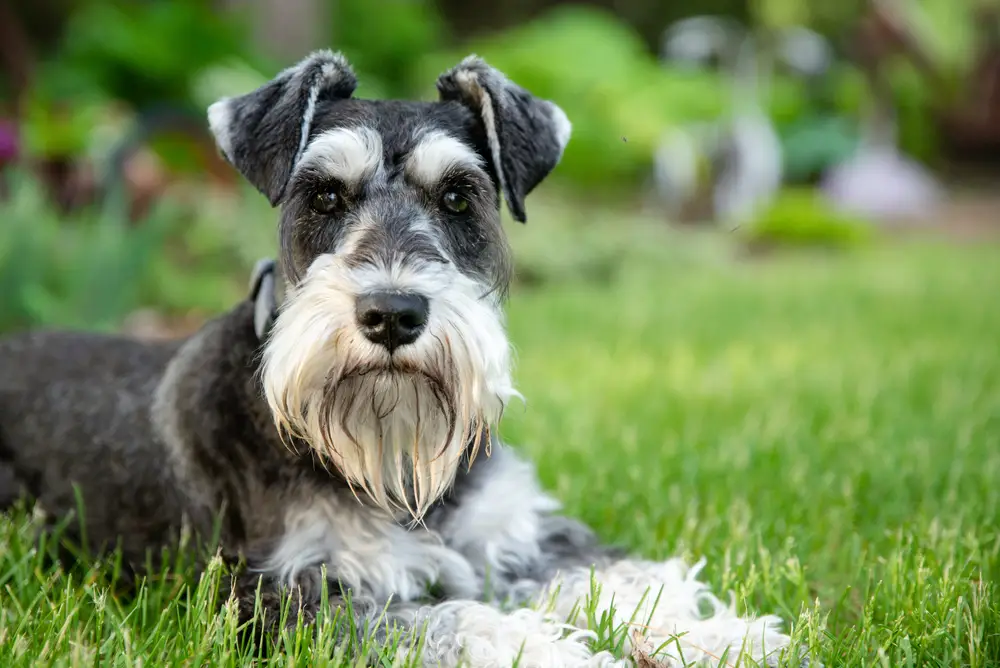
Miniature Schnauzers are known for their spirited personalities and intelligence. They are quick learners and enjoy being the center of attention, which can mean they demand a lot of interaction. While they are highly trainable, their intelligence also means they can become mischievous if not given enough mental and physical stimulation. Miniature Schnauzers love to learn new tricks and engage in problem-solving activities. For first-time owners, keeping up with their energy and curiosity can be a full-time job.
These dogs require regular exercise and enjoy activities that challenge them mentally. They are social creatures who thrive on interaction with their families. Training should be consistent and positive to keep them engaged and prevent them from becoming too headstrong. Grooming is also an important consideration, as their wiry coats need regular maintenance. First-time owners might find the combination of training, grooming, and exercise requirements to be a lot to handle.
14. Cocker Spaniel
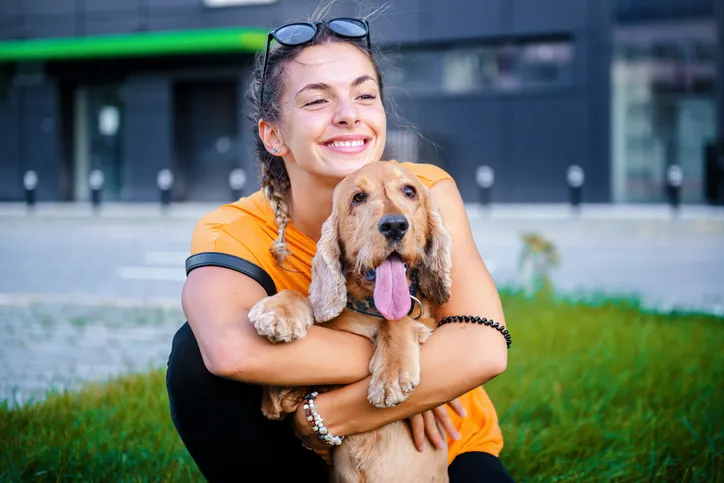
Cocker Spaniels are known for their gentle nature and intelligence. They are eager to please and relatively easy to train, but they do require a lot of attention and mental stimulation. Their intelligence means they can become bored if not given enough to do, leading to mischief. Cocker Spaniels thrive in environments where they are part of the family and have plenty of opportunities for mental and physical activities. For first-time owners, balancing their needs can be challenging.
These dogs need regular exercise and enjoy activities like fetching, hiking, and training sessions. They are social animals that love to be around people and other pets. Grooming is another important consideration, as their long coats require regular maintenance to keep them looking their best. Without enough stimulation and exercise, they can develop behavioral issues or become anxious. First-time owners need to be prepared for the level of commitment required to keep a Cocker Spaniel happy and healthy.
